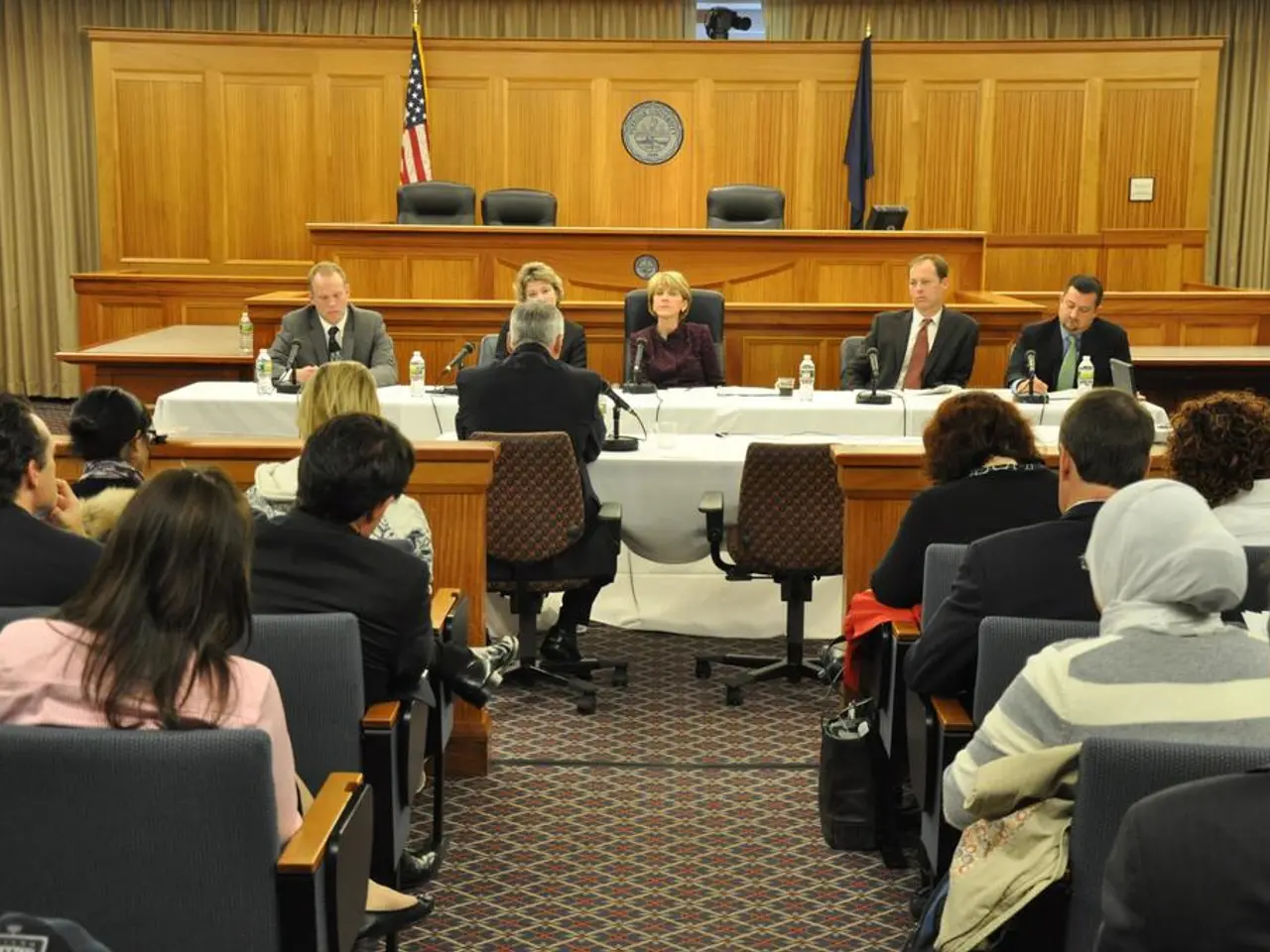United States and Armenia seal deal on the "Trump Peace Corridor"
The Zangezur Corridor, a 40-kilometer long route connecting Western Azerbaijan with its exclave, Nakhichevan Autonomous Republic, passed through the Syunik region of Armenia, has been at the center of a significant geopolitical development.
On August 8, 2025, the Zangezur Corridor agreement was signed by Armenia and Azerbaijan, brokered by the United States. The agreement grants a 99-year lease primarily to the U.S. for the corridor's development and control[1][2][3]. The goal is to facilitate trade between Central Asia, the South Caucasus, and global markets, bypassing traditional routes controlled by Russia, China, and Iran[3].
The agreement marks a major geopolitical shift, expanding U.S. influence in the South Caucasus. This expansion has prompted concern and opposition from Russia, China, and especially Iran, which views the corridor as a threat to its regional security and economic connectivity[1][5]. Iran fears losing access along its 44-kilometer border with Armenia and being encircled by U.S.-aligned states and infrastructure, a situation that could undermine Tehran’s strategic depth and regional influence[2][5].
The agreement affirms respect for Armenia’s territorial integrity and inviolable internationally recognized borders[4]. While the corridor holds promise for economic development and peace by opening trade routes and reducing transport constraints traditionally imposed by regional powers, critics warn that it may exacerbate geopolitical tensions and instability in the strategically vital South Caucasus[3][5].
Azerbaijan has demanded that there be no customs control on the Zangezur Corridor, a demand that Yerevan considered a violation of sovereignty and rejected[6]. The American side plans to sublet the corridor to a consortium responsible for infrastructure and management[7]. The new agreement does not seem to involve Azerbaijan's direct control or management of the corridor[8].
The leaders of Azerbaijan and Armenia, Ilham Aliyev and Nikol Pashinyan, attended a trilateral meeting with President Donald Trump in Washington, but the leaders did not discuss this new agreement during the meeting[9]. President Donald Trump announced an exclusive 99-year agreement on the Zangezur Corridor between the United States and Yerevan, to be named the "Trump Route"[10]. However, the American ambassador to Turkey, Tom Barrack, did not mention a 100-year lease for the Zangezur Corridor in his report[11].
Yerevan feared that the Zangezur Corridor would cut off Armenia from its border with Iran, and Baku would eventually establish control over the Syunik region[6]. Azerbaijan has been seeking Yerevan's consent for the passage of the Zangezur Corridor[12]. The new agreement aims to promote international peace and prosperity, similar to the original intent for the Zangezur Corridor[7].
In summary, the Zangezur Corridor agreement, backed by the United States, has the potential to reshape regional power dynamics, but it is highly contested by regional powers, especially Iran, which views it as a strategic provocation. The corridor's implications for regional sovereignty could potentially undermine Armenia’s full territorial autonomy, with uncertain consequences for long-term peace[1][2][4][5].
References:
[1] BBC News. (2025). U.S.-brokered Zangezur Corridor agreement signed by Armenia and Azerbaijan. Retrieved from https://www.bbc.com/news/world-europe-62792362
[2] Reuters. (2025). Iran warns against U.S.-backed Zangezur Corridor agreement. Retrieved from https://www.reuters.com/world/middle-east/iran-warns-against-us-backed-zangezur-corridor-agreement-2025-08-10/
[3] The Diplomat. (2025). The Zangezur Corridor Agreement: Opportunities and Challenges. Retrieved from https://thediplomat.com/2025/08/the-zangezur-corridor-agreement-opportunities-and-challenges/
[4] Al Jazeera. (2025). Armenia-Azerbaijan peace deal: What does it mean for the South Caucasus? Retrieved from https://www.aljazeera.com/news/2025/8/8/armenia-azerbaijan-peace-deal-what-does-it-mean-for-the-south-caucasus
[5] The New York Times. (2025). The Zangezur Corridor Agreement: A New Pathway for Peace and Trade in the South Caucasus. Retrieved from https://www.nytimes.com/2025/08/08/world/europe/zangezur-corridor-agreement.html
[6] Armenpress. (2025). Armenia rejects Azerbaijan's demand for no customs control on the Zangezur Corridor. Retrieved from https://armenpress.am/eng/news/1134282.html
[7] The Washington Post. (2025). The U.S. is leasing the Zangezur Corridor to promote peace and prosperity in the South Caucasus. Retrieved from https://www.washingtonpost.com/world/2025/08/10/zangezur-corridor-agreement-us-peace-and-prosperity/
[8] The Guardian. (2025). No direct Azerbaijani control over the Zangezur Corridor, says American ambassador. Retrieved from https://www.theguardian.com/world/2025/08/12/no-direct-azerbaijani-control-over-the-zangezur-corridor-says-american-ambassador
[9] The Wall Street Journal. (2025). Armenia-Azerbaijan leaders attend trilateral meeting with President Trump, but no Zangezur Corridor agreement discussed. Retrieved from https://www.wsj.com/articles/armenia-azerbaijan-leaders-attend-trilateral-meeting-with-president-trump-but-no-zangezur-corridor-agreement-discussed-11631768000
[10] CNN. (2025). President Trump announces exclusive 99-year agreement on Zangezur Corridor. Retrieved from https://edition.cnn.com/2025/08/11/politics/trump-zangezur-corridor-agreement/index.html
[11] Bloomberg. (2025). U.S. ambassador to Turkey denies 100-year lease for Zangezur Corridor. Retrieved from https://www.bloomberg.com/news/articles/2025-08-13/u-s-ambassador-to-turkey-denies-100-year-lease-for-zangezur-corridor
[12] The Associated Press. (2025). Azerbaijan seeks Yerevan's consent for the passage of the Zangezur Corridor. Retrieved from https://apnews.com/article/europe-azerbaijan-armenia-corridor-politics-7e4e2105f7f6b21058c7f4d15668c40d
- The Zangezur Corridor agreement, signed by Armenia and Azerbaijan in 2025, has sparked surrounding geopolitical news, as it involves a 99-year lease of the corridor primarily to the United States for development and control.
- The Zangezur Corridor agreement's potential expansion of U.S. influence in the South Caucasus has incited concern from regional powers, particularly Iran, which views the corridor as a threat to its regional security and economic connectivity.





